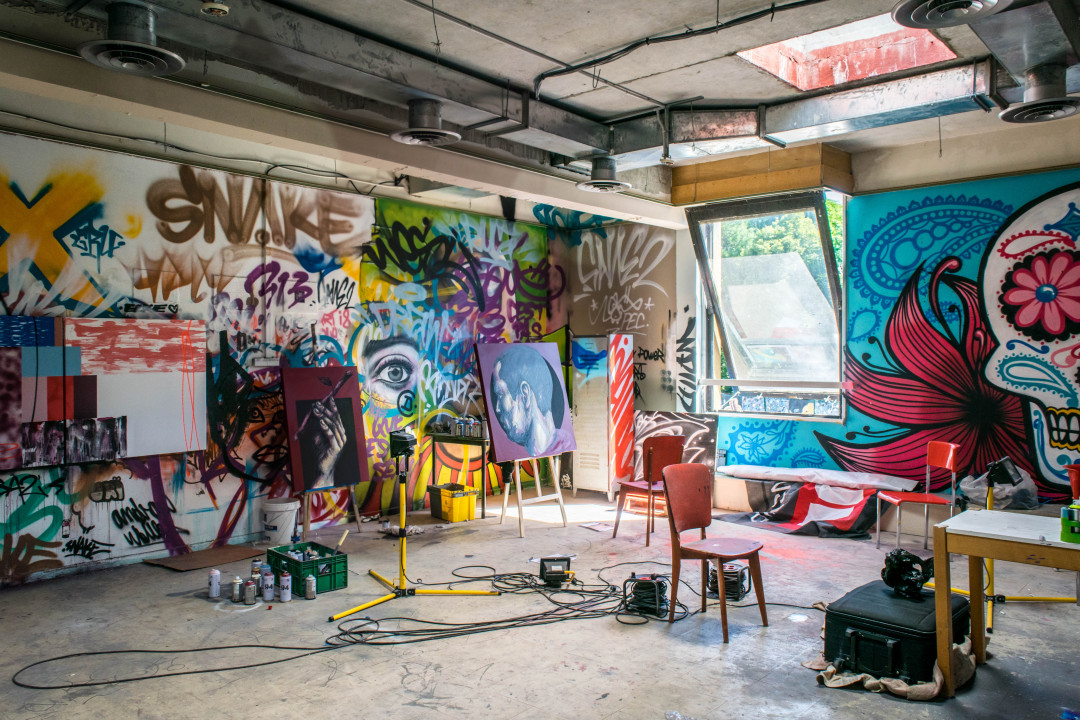
Author: Kalina Todorova
“Even the longest path starts with one small step” - Lao Tzu’s words, dating back to the VI-th century B.C continue to sound contemporary in the XXI-st. Every new endeavor, no matter how fleeting or long-term it may be, always starts with the first step. However, what happens if you are already on that path, but for a number of reasons, some of which beyond your control, you come to a standstill and cannot see the way forward?

This is a common phenomenon among people within the arts industry and in general those working in the creative industries. If you are one of them or have such friends, then you must have heard at least once the expression that they have hit a creative 'dead end'.
Undoubtedly, any activity that requires inspiration, talent and creativity requires much more energy than doing something mechanically and without thinking. Even more so, if usually there are not many (accessible) opportunities for development around you. That's why artists sometimes feel pressured by the circumstances, and the expectations to always be in a creative mode.
Fortunately, getting out of this metaphorical hole or dead end is much easier than we thought. All you need is the right approach to the situation and of course - a dose of motivation. Here are the first three guidelines we’ve gathered for you on how to easily push your practice in the right direction.
Set yourself clear goals and make a plan
It sounds quite simple, but you will be surprised at how much your goals, and therefore your plan, will change in the development process. Whether you are starting now or just want to take a slightly different direction, making a straightforward and consistent plan (or reviewing an existing one) is vital. This includes everything from a daily to-do list, a one-month overview of your progress, and long-term, annual intentions. You need to be aware of yourself and your goals, and then start working on them step by step.
If your long-term aim includes a solo exhibition, then in short term this means drawing inspiration from different sources, creating new works and making connections with different galleries. If you want to start your own gallery or your own business, then you need to get familiar with all the features and practical engagements and responsibilities along the way. Why not even enroll into a business course or sign up for entrepreneurship classes?
Be on the lookout for new opportunities
Once you have a detailed description of your plan and goals, it's time to start looking for options. This doesn’t mean standing in front of your computer and hoping for an advertisement or announcement to appear on social media. This is called passive search. In contrast, active search means using different approaches. For example, subscribe to the email newsletters of various companies, foundations, galleries and spaces that might interest you. Another more bolder approach is to contact the directors of the institution or practitioners in the field in order to introduce yourself in person. This way you are not only making a new connection, enriching your network, but you also put yourself on the radar of the respective institution / person.
Think outside the box

Regardless of your field of development, there are many ways to enhance your skills and knowledge supplies. The most obvious option is to consistently devote enough time to your art or practice. That is, through constant self-improvement and research. Another less logical option is to sign up for lessons that are at first glance not specifically related to your practice, but which can benefit it in some way. For example, if you want to develop your online presence and social media image, it will be useful to enroll in a course in marketing management. This way you acquire not only specific knowledge, but also the so-called "transferable skills", which can be used in different roles or professions. Going outside the usual framework, although it may seem unnecessary to you, is a great way to gain a new perspective on the situation and to show you the way out of the "dead end". Remember that everything you learn can be of benefit.